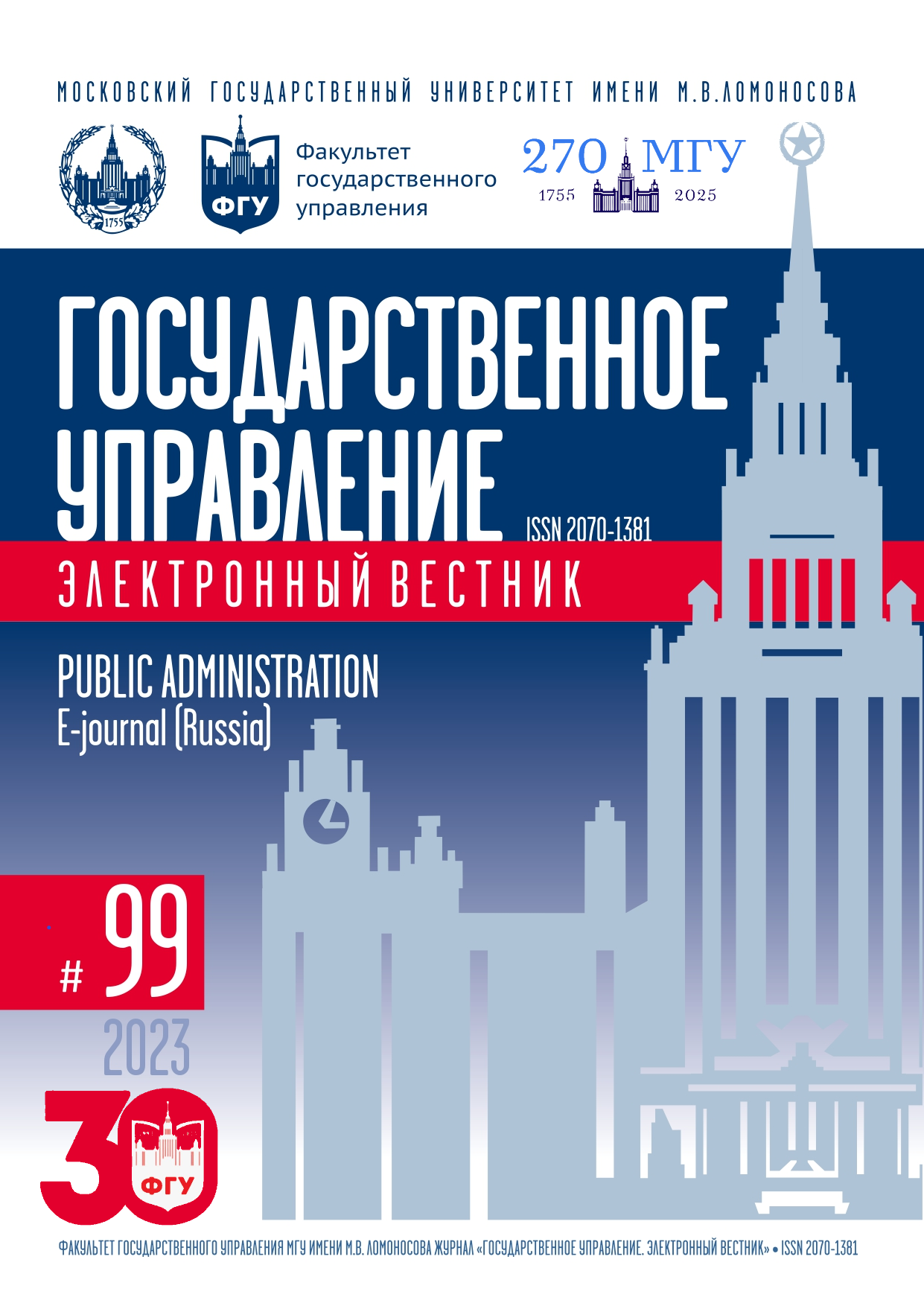Цифровые компетенции специалиста по подбору персонала
Ключевые слова:
Компетенция, компетентность, цифровые компетенции, рекрутер, цифровизация, профессиональный стандартАннотация
Масштабное развитие цифровых технологий способствует пересмотру деятельности специалиста по подбору персонала. Наработанные и апробированные в течение нескольких десятилетий модели компетенций рекрутера стремительно теряют актуальность в современных условиях. Речь идет не о частичных изменениях, а о фундаментальной трансформации. Все чаще слышатся мнения о том, что пришло время передать цифровым системам не только задачи поиска, подбора и оценки претендентов, но также право принятия финального решения в процессе трудоустройства. Данную ситуацию нельзя недооценивать, поскольку цифровые инструменты становятся определяющим фактором в работе организации, оказывают влияние на ее развитие, а также на развитие ее сотрудников. Как следствие, возникают вопросы к новому составу компетенций рекрутера, которые позволят сохранить высокие показатели профессионализма, а также обосновать востребованность труда реального специалиста на всем протяжении процесса рекрутмента. Цель работы — выявление актуальных компетенций рекрутера, необходимых для работы в условиях внедрения цифровых технологий. Обобщение информации из разных источников, в том числе результатов проведенного контент-анализа объявлений о вакансиях специалистов по подбору персонала, позволило определить наиболее значимые цифровые компетенции рекрутера в условиях цифровизации данной профессии. В результате выявлено, что цифровые инструменты являются не только формальным требованием, предъявляемым к рекрутерской деятельности, но и сущностной характеристикой должностных обязанностей. Кроме этого, показано, что появляются некоторые проблемы в связи с расширением цифровизации в сфере деятельности по подбору персонала.
Библиографические ссылки
Васильчиков А.В., Гагаринская Г.П., Обущенко Т.Н. Модель компетенций рекрутера в эпоху технологичности и цифровой экономики // Экономика труда. 2018. Т. 5. № 4. С. 959–974. DOI: 10.18334/et.5.4.39652
Добринская Д.Е. Цифровое общество в социологической перспективе // Вестник Московского университета. Серия 18. Социология и политология. 2019. Т. 25. №. 4. С. 175–192. DOI: 10.24290/1029-3736-2019-25-4-175-192
Зайцева Т.В. Управление развитием человеческих ресурсов организации // Вестник Московского университета. Серия 21. Управление (государство и общество). 2010. № 1. С. 3–16.
Ишмуратова Д.Ф. Цифровая грамотность молодежи: анализ отдельных элементов // Теория и практика общественного развития. 2022. № 1(167). С. 83–86. DOI: 10.24158/tipor.2022.1.12
Каширин К.А., Дубровская Е.Д. Компетенция и компетентность // Педагогика & Психология. Теория и практика. Международный научный журнал. 2019. № 5(25). С. 53–60.
Кудрявцева Е.И. Компетенции и менеджмент: компетенции в менеджменте, компетенции менеджеров, менеджмент компетенций. Спб.: СЗИУ РАНХиГС, 2012.
Лига М.Б., Щеткина И.А. Человек в эпоху цифровизации общества // Гуманитарный вектор. 2021. Т. 16. № 2. С. 29–38. DOI: 10.21209/1996-7853-2021-16-2-29-38
Ловчева М.В., Гурова Е.В., Лаас Н.И., Романова И.А. Цифровые инструменты рекрутинга и оценки профессиональных компетенций ИТ-специалистов // Современная экономика: проблемы и решения. 2020. Т. 2. С. 61–71. DOI: 10.17308/meps.2020.2/2306
Мирончук Е.В., Мирончук Д.Э. Понятия «компетентность» и «компетенция» в системе педагогического и общенаучного знания // Наука и школа. 2022. № 5. С. 85–97. DOI: 10.31862/1819-463X-2022-5-85-97
Можаева Г.В., Александрова Л.Д., Пуляева В.Н. Цифровые компетенции в модели актуальных компетенций управленческих кадров // Гуманитарные науки. Вестник Финансового университета. 2020. Т. 10. № 6. С. 49–55. DOI: 10.26794/2226-7867-2020-10-6-49-55.
Симарова И.С., Алезшксеевичева Ю.В., Жигин Д.В. Цифровые компетенции: понятие, виды, оценка и развитие // Вопросы инновационной экономики. 2022. Т. 12. № 2. С. 935–948. DOI: 10.18334/vinec.12.2.114823
Яркова С.А., Якимова Л.Д., Данилова А.С. Компетентностный подход в подготовке HR-менеджеров: от образовательного к профессиональному стандарту // Экономика труда. 2018. Т. 5. № 1. С. 43–60. DOI: 10.18334/et.5.1.38808
Chouhan V.S., Srivastava S. Understanding Competencies and Competency Modeling — A Literature Survey // IOSR Journal of Business and Management. 2014. Vol. 16. Is. 1. P. 14–22.
Gardner S.D., Lepak D.P., Bartol K.M. Virtual HR: The Impact of Information Technology on the Human Resource Professional // Journal of Vocational Behavior. 2003. Vol. 63. Is. 2. P. 159–179. DOI: 10.1016/S0001-8791(03)00039-3
Meyers E.M., Erickson I., Small R.V. Digital Literacy and Informal Learning Environments: An Introduction // Learning, Media and Technology. 2013. Vol. 38. Is. 4. P. 355–367. DOI: 10.1080/17439884.2013.783597
Nankervis A.R., Cameron R. Capabilities and Competencies for Digitised Human Resource Management: Perspectives from Australian HR Professionals // Asia Pacific Journal of Human Resources. 2023. Vol. 61. Is. 1. P. 232–251. DOI: 10.1111/1744-7941.12354
Загрузки
Опубликован
Похожие статьи
- Зайцева Татьяна Вячеславовна, Квалификационный и компетентностный подходы на государственной гражданскойслужбе: квалификация как базис, компетенция как цель , Государственное управление. Электронный вестник: № 107 (2024)
- Панова Екатерина Александровна, Тарасова Екатерина Юрьевна, Развитие цифровых компетенций и цифровой грамотности государственных служащих в условиях цифровой модернизации государственного управления , Государственное управление. Электронный вестник: № 112 (2025)
- Авилкина Светлана Викторовна, Повышение квалификации государственных гражданских служащих субъектов РФ в условиях цифровизации , Государственное управление. Электронный вестник: № 84 (2021)
- Беззубцева Маргарита Владимировна, Григорьева Наталия Сергеевна, Демкина Александра Евгеньевна, Кочергина Анастасия Михайловна, Цифровизация здравоохранения в России: мониторинговое исследование цифровой грамотности медицинских работников , Государственное управление. Электронный вестник: № 93 (2022)
- Панова Екатерина Александровна, Влияние цифровизации на корпоративную кадровую политику , Государственное управление. Электронный вестник: № 101 (2023)
- Лапидус Лариса Владимировна, Роль технологических инноваций в развитии бизнеса и цифровой трансформации в странах Евразийского экономического союза , Государственное управление. Электронный вестник: № 95 (2022)
- Титова Анна Сергеевна, Сухарева Мария Алексеевна, Федосеев Алексей Игоревич, Анализ стратегий сообществ в контексте развития цифровой экономики и ее социальных последствий , Государственное управление. Электронный вестник: № 93 (2022)
- Вагин Михаил Сергеевич, Палкина Елена Сергеевна, Экономико-математическая модель оценки синергетического эффекта от совместного внедрения бережливого производства и цифровизации на промышленном предприятии , Государственное управление. Электронный вестник: № 112 (2025)
- Рябинина Анна Михайловна, Тенденции академической мобильности в условиях пандемии COVID-19 на примере МГУ имени М.В. Ломоносова , Государственное управление. Электронный вестник: № 92 (2022)
- Ли Минхань, Инструменты стимулирования развития трансграничного онлайн-бизнеса в интересах укрепления интеграции в ЕАЭС и БРИКС , Государственное управление. Электронный вестник: № 110 (2025)
Вы также можете начать расширеннвй поиск похожих статей для этой статьи.




